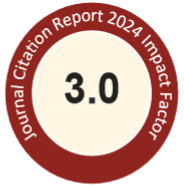Abstract
Human triple-negative breast cancer (TNBC) is the most aggressive and poorly understood subclass of breast cancer. Glucose transporters (GLUTs) are required for glucose uptake in malignant cancer cells and are ideal targets for cancer therapy. To determine whether the inhibition of GLUTs could be used in TNBC cell therapy, the apple polyphenol phloretin (Ph) was used as a specific antagonist of GLUT2 protein function in human TNBC cells. Interestingly, we found that Ph (10–150 μM, for 24 h) inhibited cell growth and arrested the cell cycle in MDA-MB-231 cells in a p53 mutant-dependent manner, which was confirmed by pre-treatment of the cells with a p53-specific dominant-negative expression vector. We also found that Ph treatment (10–150 μM, for 24 h) significantly decreased the migratory activity of the MDA-MB-231 cells through the inhibition of paxillin/FAK, Src, and alpha smooth muscle actin (α-sMA) and through the activation of E-cadherin. Furthermore, the anti-tumorigenic effect of Ph (10, 50 mg/kg or DMSO twice a week for six weeks) was demonstrated in vivo using BALB/c nude mice bearing MDA-MB-231 tumor xenografts. A decrease in N-cadherin, vimentin and an increase in p53, p21 and E-cadherin were detected in the tumor tissues. In conclusion, inhibition of GLUT2 by the apple polyphenol Ph could potentially suppress TNBC tumor cell growth and metastasis. © 2017
ScienceDirect Link
Recommended Citation
Wu, K.-H.; Ho, C.-T.; Chen, Z.-F.; Chen, L.-C.; Whang-Peng, J.; Lin, T.-N.; and Ho, Y.-S.
(2018)
"The apple polyphenol phloretin inhibits breast cancer cell migration and proliferation via inhibition of signals by type 2 glucose transporter,"
Journal of Food and Drug Analysis: Vol. 26
:
Iss.
1
, Article 24.
Available at: https://doi.org/10.1016/j.jfda.2017.03.009
Creative Commons License

This work is licensed under a Creative Commons Attribution-Noncommercial-No Derivative Works 4.0 License.
Fulltext URL
https://www.sciencedirect.com/science/article/pii/S1021949817300856/pdfft?md5=f294138dd939ba8d8b2fea9fd6bb8864&pid=1-s2.0-S1021949817300856-main.pdf
Included in
Food Science Commons, Medicinal Chemistry and Pharmaceutics Commons, Pharmacology Commons, Toxicology Commons


Abstract Image